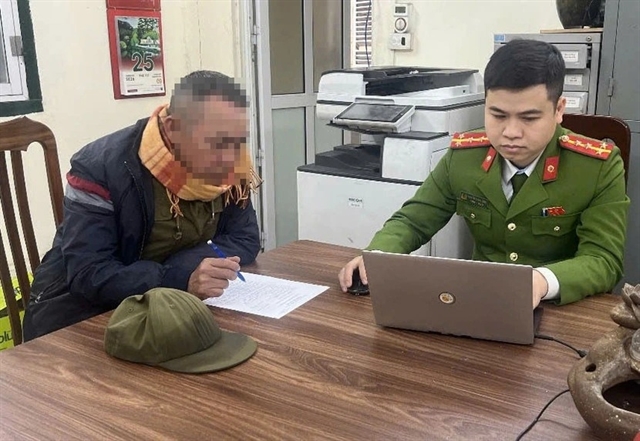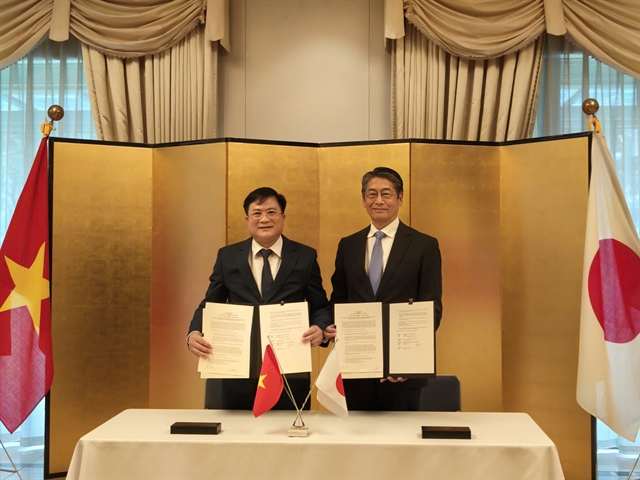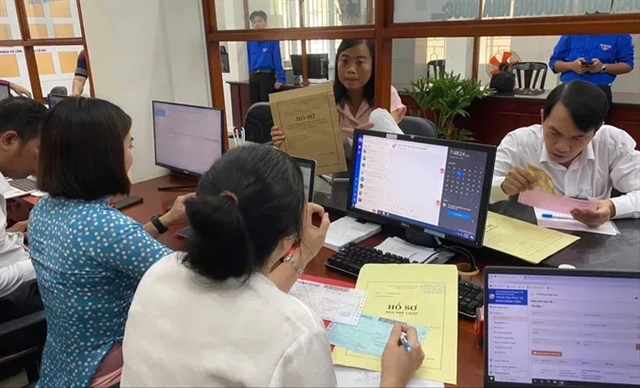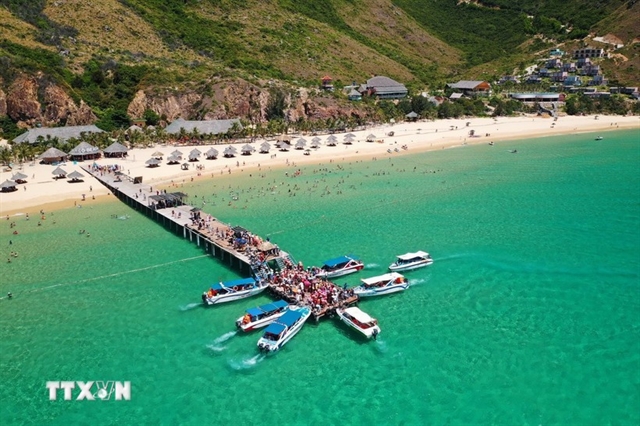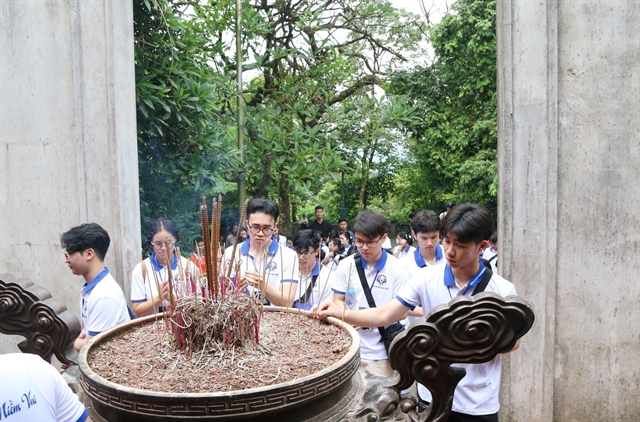 Life & Style
Life & Style

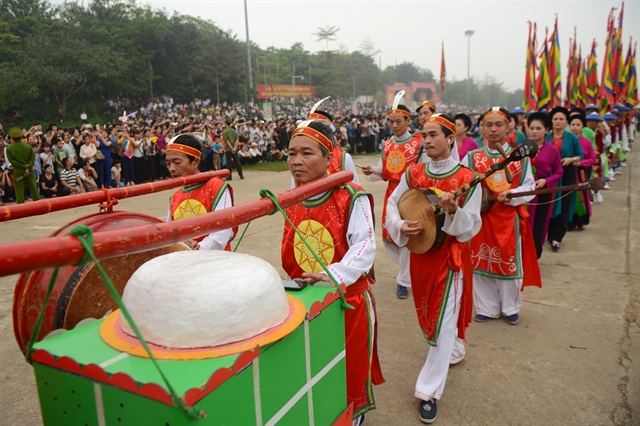 |
| A parade held during the Hùng Kings Festival at the Hùng Kings Temple historical relic site in the northern province of Phú Thọ. Photo tapchicongsan.org.vn |
PHÚ THỌ — The Hùng Kings Commemoration Day and a cultural and tourism week will take place at the Hùng Kings Temple historical relic site and localities of the northern province of Phú Thọ from March 29 to April 7, or from the 1st to the 10th day of the third lunar month, according to the provincial People’s Committee.
The day will feature a wide array of folk activities, including a procession that offers incense and flowers, to commemorate the legendary ancestors of the nation, Father Lạc Long Quân and Mother Âu Cơ.
Meanwhile, as many as 22 distinctive cultural, sports, and tourism activities among other programmes will be organised during the week, aiming to attracting visitors to Phú Thọ.
According to the provincial People's Committee, the events aim to educate the tradition of patriotism and gratitude to the Hùng Kings and ancestors who contributed to building and protecting the nation; as well as contribute to popularising tourism and local cultural heritage towards promoting tourism and economic development in the province.
Every year, activities to worship them take place ahead of the commemoration of the Hùng Kings, believed to be the very first founders of Vietnam, on the 10th day of the third lunar month (which falls on April 7 this year).
Legend has it that Lạc Long Quân (real name Sùng Lãm, a son of Kinh Dương Vương and Thần Long Nữ) married Âu Cơ (the fairy daughter of Đế Lại). Âu Cơ then went on to give birth to a pouch filled with one hundred eggs, which hatched into a hundred sons. However, soon thereafter, Lạc Long Quân and Âu Cơ separated. Lạc Long Quân went to the coast with 50 of the children, while Âu Cơ went to the highlands with the rest.
Their eldest son was made king, who named the country Văn Lang and set up the capital in Phong Châu (modern-day Việt Trì City in Phú Thọ Province), beginning the 18 reigns of the Hung Kings.
The kings chose Nghĩa Lĩnh Mountain, the highest in the region, to perform rituals devoted to rice and sun deities to pray for bumper crops.
To honour their great contributions, a complex of temples dedicated to them was built on Nghĩa Lĩnh Mountain, and the 10th day of the third lunar month serves as the national commemorative anniversary for the kings.
The worship of the Hùng Kings, closely related to the ancestral worship traditions of most Vietnamese families, was recognised as part of the Intangible Cultural Heritage of Humanity by UNESCO in 2012. — VNA/VNS

